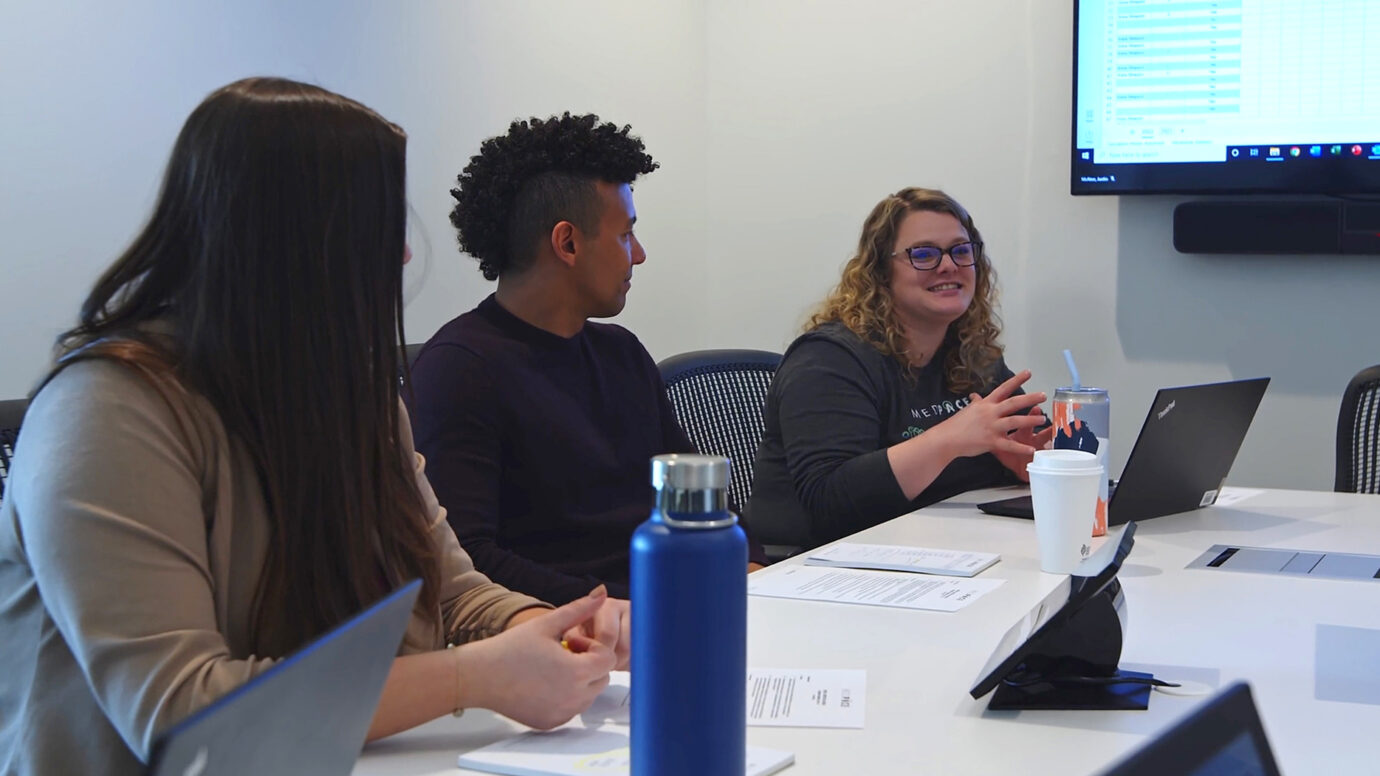At Medpace, Information Technology teams are imperative to our success as a global Contract Research Organization (CRO). Between the management of internal systems, patient information, trial data, and more, we can thank our Software Engineers for reliable, sophisticated experiences and privacy infrastructure. These technologies are integral in our mission of driving clinical research forward.
As part of our April Monthly Role Spotlight, we spoke with two Software Engineers to shed light on their function at Medpace. Software Engineers contribute to the daily duties and success of clinical roles across our global offices, so come along as our April spotlights take us through their roles at Medpace.
Jayesh Mishra, Software Engineer
Why did you decide to pursue a role as a Software Engineer?

I have been interested in computer science ever since I was a kid, especially because of my older brother’s computer and the games we used to play. As I grew older, I started to understand just how powerful and efficient computers can be in solving real world problems and making life easier. That curiosity turned into a strong interest in computer science and eventually led me to pursue software engineering. I enjoy exploring how things work behind the scenes and love the idea of building software that can make a real impact.
How does an IT role in clinical research differ from your past experience?
Previously, I worked with fintech banks and SaaS product companies where we built meaningful solutions that created significant value and addressed real-world problems effectively. It was a great experience seeing the impact of what we built. Now, working in clinical research has taken that to another level. Being part of the clinical trial process means contributing to something that can truly impact lives. We focus on improving efficiency, maintaining confidentiality, and accelerating the entire value chain of drug and device development.
Why should someone consider a path as a Software Engineer?
If someone enjoys solving problems and is curious about technologies, Medpace is a great place to be. As a software engineer here, you get to work on meaningful projects that support clinical research and help make clinical trials more efficient. What I really appreciate is the open culture—ideas and feedback are taken seriously, and you have a chance to take ownership of your work. You’re also encouraged to collaborate with different teams and really understand the bigger picture behind what you’re building.
In your own words, what are three key job responsibilities?
- Understanding the Domain: Work closely with domain experts to understand clinical research challenges and guide project development accordingly.
- Design & Build Solutions: Help design features, write clean and efficient code, review peers’ work, and keep the codebase organized and maintainable.
- Full-Stack Development: Write solid, quality code across front-end, back-end, and database layers, always aiming for the best solution.
Lilly Schott, Software Engineer
How did you become interested in a career in software engineering?

I took a few web design and computer programming classes in high school. I would say that’s when I started getting really interested in software. I was fascinated by the simple websites and games I made with just a few lines of code and some imagination. Because of this experience, I decided to major in Software Development in college. I then got to work on much larger and more complicated projects and started to see how my work contributed to products that many people used often and relied on. I found that I loved working through challenging problems and helping others. That lead me to a career as a software engineer!
What is one skill you’ve developed and/or honed during your tenure and what is one new skill you’ve learned?
A skill I’ve developed during my time as a software engineer is attention to detail. During the development process, things like typos, logic errors, and inefficient code can pop up. This is especially true when working in large, complex code bases. It’s crucial to catch these problems early to avoid the time and effort it would take to fix them down the line. Because of this, routinely checking and testing my code has become an integral part of my development process. As an additional check, when finalizing new features or bug fixes, development teams typically go through a code review process in which other developers will go through the proposed code changes and make sure there are no missed problems or errors as well as making sure the code is clean and efficient. This has been a great opportunity for me to both learn from any mistakes I make and to help my team catch problems.
One very important skill I’ve learned and continue to improve upon is effective communication. Software engineering is an incredibly collaborative field. I’ve worked on several different teams of developers where I’ve needed to work with others to find solutions to complex problems or explore new options to improve existing solutions. Because of this, it’s crucial that I can articulate my thoughts and ask relevant questions. A dev team that communicates effectively can be on the same page faster and work together more seamlessly.
Why is software engineering important in an industry like clinical research?
Clinical research comes with lots of important data like patient information, lab results, financial records, etc. Software engineers build and maintain many of the systems used to record, process, store, and retrieve that data. In a clinical setting, it is especially imperative that data is accurate, securely stored, and available when needed. The software engineers at Medpace build systems with this in mind so clinical professionals across the company can do their jobs efficiently.
In your own words, what are three key job responsibilities?
A few key responsibilities of my job include system maintenance and support (fixing bugs, documenting processes, refactoring code to improve performance or security), innovating new features according to business requirements, and participating in ceremonies that help my team run efficiently (daily stand-up meetings to address blocking issues, refinement to properly document work items, team meetings for brainstorming ideas).
Create clinical research computer systems.
Ready to put your exceptional coding skills to work in improving the lives of millions? Searching for a collaborative environment to refine your skillset? Medpace is seeking Software Engineers at two of our largest offices: Cincinnati and Navi Mumbai, India. Visit the link below to find your fit and apply today.

Medpace careers